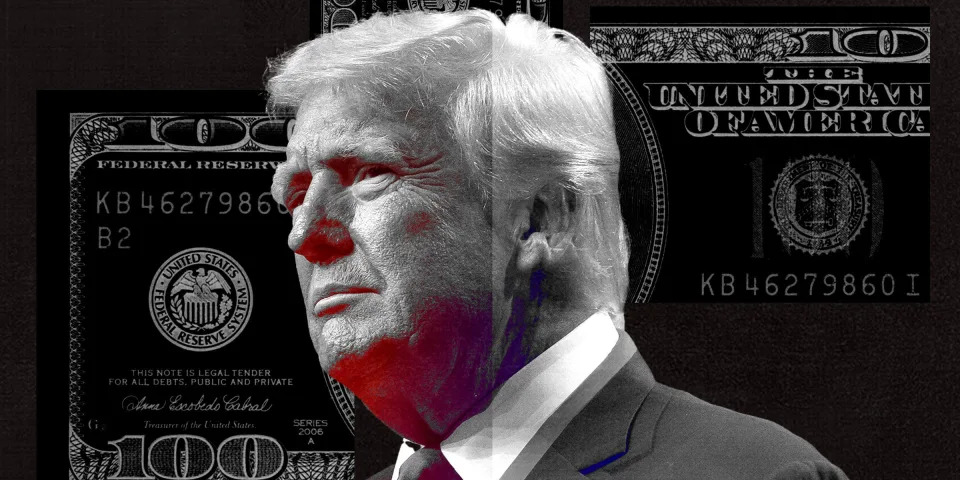News
Why a strengthening US dollar could spark instability in global markets in Trump's 2nd term

Donald Trump's proposed policies are likely to give the US dollar a boost during his second term, but a stronger US currency has the potential to unleash chaos in global markets, according to one think tank researcher.
Michael Klein, a senior research fellow at Chatham House, an international affairs think tank, wrote this week that the dollar will likely rise under Trump, despite Trump's own suggestion that he would like to see a weaker dollar to slim the US trade deficit.
That's unlikely to happen, Klein said, largely because the greenback's other currency rivals remain challenged and because Trump's policies are bullish for the dollar.
"President-elect Donald Trump has a dollar problem. In recent months he has shown a clear preference for a weaker exchange rate to support the competitiveness of US exports and help reduce the US trade deficit. And yet, as the market has sensed since the US election, the much more likely outcome is that his policies end up strengthening the greenback. The risk is that the US dollar— which is expensive already — becomes more obviously overvalued, and this could increase the risk of global financial stability," Klein wrote.
Klein said a stronger dollar could be bad news for other economies around the world. Given how widely the greenback is used across financial markets, global trade could be suppressed if the dollar gains in value.
Countries that find their currency devalued against the dollar, meanwhile, could have a harder time taming inflation.
"If and when the dollar becomes unsustainably expensive, a further problem will present itself: how to deal with an overvalued currency without risking a lot of financial dislocation," Klein said. "Without much scope for a negotiated decline in the dollar, more chaotic alternatives seem likely."
Markets have already picked up on the likelihood of a stronger US currency under Trump's presidency. The US Dollar Index , which weighs the greenback against a basket of currencies, has climbed around 3% over the last month and briefly surpassed 107 on Thursday, its highest level in a year.
Several of Trump's policies are supportive of a stronger US currency. Klein pointed to Trump's plans for steep tariffs, which include a 10% blanket tariff on most US imports and a 60% tariff on Chinese imports.
The US imposing tariffs on another country also tends to devalue the other country's currency, Klein added, due to traders selling the currency on foreign exchange markets. Such was the case in 2018, when Trump's trade restrictions on China led the yuan to depreciate 10% against the dollar that year, Fed data shows.
"More widespread tariffs on a whole range of US trading partners should therefore strengthen the dollar more broadly," Klein added.
Economists have also said Trump's tariff plan could stoke higher inflation and higher interest rates, which would prop up the greenback. Trump's other policies, like his plan to cut taxes , could also add to price pressures, Klein said.
"Since boosting the US economy will create inflationary pressure, the market will expect interest rates to end up higher than they might otherwise be. The resulting combination of looser fiscal and tighter monetary policy tends to lead to a stronger currency," Klein said.
Trump has pushed back on the idea that his policies could stoke higher prices, and maintained that he will push inflation lower during his presidency. He brought tariffs on some imports from China during his first term without a significant inflation increase, but economists say his tariff plan this time around is more wide-reaching, with a higher likelihood prices rise as a result.
Read the original article on Business Insider

